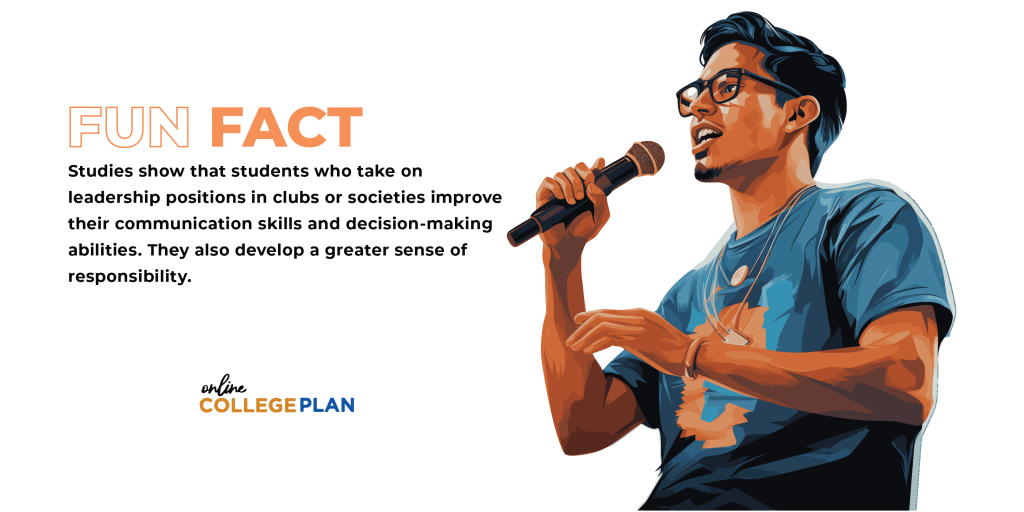Find your degree
Welcome to your sophomore year— an exciting time in your college journey! We created this college prep guide for sophomores. It is your go-to guide for navigating the exciting challenges and opportunities that lie ahead.
We break down key aspects in our guide. We help you understand what’s ahead and what is needed to build a strong academic foundation. We discuss exploring potential majors and post-college careers. You will learn the importance of getting involved with:
- extracurricular activities
- study abroad opportunities
- career counseling services
These sophomore college planning tips will empower you! They will give you practical advice to make your sophomore year a productive experience. Let’s dive in and unlock the secrets to a successful and enjoyable second year of college!
Related Resources:
Junior Year in High School: Your Go-to College Planning Roadmap
Senior Year College Prep: An Easy Guide to Success
Understanding the Power of Knowing What’s Ahead and What to Expect
As you prepare for college in your second year, it’s important to understand what lies ahead. You will need to set realistic expectations. Sophomore year is a pivotal time where you start to take a deeper dive into your academic and personal journey. Here are some key aspects to consider:
- Reflect on Freshman Year: Take a moment to reflect on your freshman year. What worked well? What challenges did you face? Use these insights to make informed decisions moving forward. Do you need to adjust your study habits? Find better ways to manage your time? Reflecting on your experiences can be a powerful tool for growth.
- Set Clear Academic Goals: Identify your academic strengths and weaknesses. Are there specific subjects you excel in or struggle with? Use this information to set clear academic goals for the upcoming year. Whether it’s improving your GPA, taking on more challenging courses, or exploring new areas of study, having defined goals can provide direction and motivation.
- Develop Time Management Skills: You need to master time management as your coursework becomes more demanding. Invest time in creating a realistic schedule. This will help you balance your academic commitments and personal downtime. Balancing your responsibilities will not only reduce stress. It will also contribute to a more fulfilling college experience.
Building a Strong Academic Foundation
Creating a strong academic foundation is vital for success in college and beyond. It enhances your understanding of subjects and sharpens critical thinking skills. This foundation will help you reach your full potential and achieve excellence in career. Here are some ways you can build this foundation during your sophomore year:
- Choose Your Major Wisely: Sophomore year is an excellent time to explore potential majors. Attend informational sessions and speak with academic advisors. Consider taking introductory courses in different fields. Keep in mind that it’s okay if you haven’t decided on a major yet—many students use this time to explore and find their passion.
- Connect with Professors: Building relationships with professors can enhance your academic experience. Attend office hours and ask questions. Professors can offer valuable insights into your major and even serve in a mentor role. They may be aware of research opportunities or internships in your field. In the future, they can also serve as a job reference or write a letter of recommendation!
- Utilize Academic Resources: Take advantage of the various academic resources offered by your college. This could include tutoring services or writing centers. They may even offer guided study groups. These resources can support your academic journey and make a significant difference in your understanding of course material.
Exploring Potential College Majors and Post-College Careers
Choosing a major that aligns with your career plans is a crucial step in your sophomore year. From attending informative sessions to speaking with advisors, it is critical that you make an informed decision. Whether you have a major already in mind or are still deciding, these insights will help guide you in your selection.
- Attend Career Development Workshops: Start exploring potential career paths early on. Attend career development workshops and seminars offered by your college’s career services. These events can provide information about different industries. They will also give you an idea of the skills employers are looking for. You can also learn about job market trends.
- Seek Internship Opportunities: Internships are a fantastic way to gain real-world experience and build your resume. Investigate internship opportunities related to your field of interest. Many companies offer internships specifically for college students. These opportunities give you a glimpse into the professional world. They can also help you develop practical skills. Internship opportunities could even be paid!
- Network with Alumni: Networking is a powerful tool for career development. Attend alumni events or join professional organizations related to your field. You should utilize an online platform like LinkedIn. Connecting with alumni can offer valuable advice and mentorship. Who knows? These connections could lead to a job opportunity!
Getting Involved in Extracurricular Activities to Build College Resume
Sophomore year college preparation isn’t just about academics. Beyond textbooks, extracurricular activities provide a platform for personal growth and skill development. Whether you join a club or a community service group, active participation can enrich your college experience. Here are some tips for boosting your college resume through extracurriculars:
- Join Student Organizations: Extracurricular activities play an important role in the college experience. Joining student organizations allows you to pursue your interests while building a diverse and well-rounded resume. Look for clubs, sports teams, or community service groups that align with your passions. Many students develop lifelong friendships too!
- Take on Leadership Roles: As a sophomore, consider taking on leadership roles within student organizations. Whether it’s becoming a club officer or organizing events, leadership experience demonstrates initiative. This can set you apart when applying for internships or jobs in the future.
- Document Your Achievements: Keep a record of your extracurricular involvement and achievements. This could include volunteer work, leadership roles, or significant projects. Having a comprehensive record will help when updating your resume or preparing for interviews.
Considering Study Abroad Opportunities
- Explore Study Abroad Programs: Sophomore year is an ideal time to explore study abroad opportunities. Check out programs offered by your college. Consider how a semester or year abroad aligns with your academic and personal goals. Studying in a different country can provide a unique cultural experience and broaden your perspective.
- Plan Finances Accordingly: While the prospect of studying abroad is exciting, it’s essential to plan your finances accordingly. Research scholarship opportunities and estimate the cost of living in the host country. You will want to explore funding options, so you stay within budget. Proper financial planning will ensure that studying abroad is a feasible and enriching experience.
- Embrace Cultural Diversity: If you decide to study abroad, embrace the cultural diversity around you. Engage with local communities, try new foods, and participate in cultural events. This experience will enhance your global awareness. It will also contribute to personal growth and adaptability.
Meeting with a Career Counselor
Navigating your academic journey becomes smoother with the guidance of a career counselor. In this section, we’ll explore the importance of meeting with a career counselor during your sophomore year. Here are some tips for making the most out of your career counseling sessions:
- Schedule Regular Career Counseling Sessions: Career counseling is a valuable resource that many students overlook. Schedule regular sessions with your college’s career counselor to discuss your goals and explore potential career paths. They can also offer guidance on resume building and job searching.
- Seek Guidance on Post-Graduation Plans: Whether you have a clear career path in mind or are still exploring options, a career counselor can provide valuable insights. Discuss your post-graduation plans and learn about the job market. A counselor can guide you through the steps to take during your sophomore and junior years as you prepare to transition into the workforce. You’ll definitely be ahead of the curve if you begin working with a career counselor during your sophomore year.
- Utilize Career Assessment Tools: Career assessment tools can help you identify your strengths, interests, and potential career paths. Many career counselors use these tools to guide students in making better decisions about their academic and professional futures. You may have taken these in high school, but it never hurts to take them again!
Conclusion
In conclusion, sophomore year is a time of exploration, growth, and preparation for the future. By understanding what’s ahead and building a strong academic foundation you can make the most of your college experience and set yourself on a path to success. Embrace the opportunities that come your way, stay curious, and enjoy the journey ahead!
Frequently Asked Questions
Sophomore year in college varies for everyone. It can be a bit challenging as classes get more focused, and you might decide on a major. You will need to juggle academics, activities, and maybe internships. But, it’s also a time to feel more confident and self-aware.
The “sophomore slump” is a term used to describe when students lose momentum or motivation during their sophomore year. After the initial excitement of freshman year, some students begin to struggle with academic pressure. Others find it hard to keep up with the increased workload. Not every student experiences the “sophomore slump.”
Full time students should expect to take between three and four classes each semester during their sophomore year.






